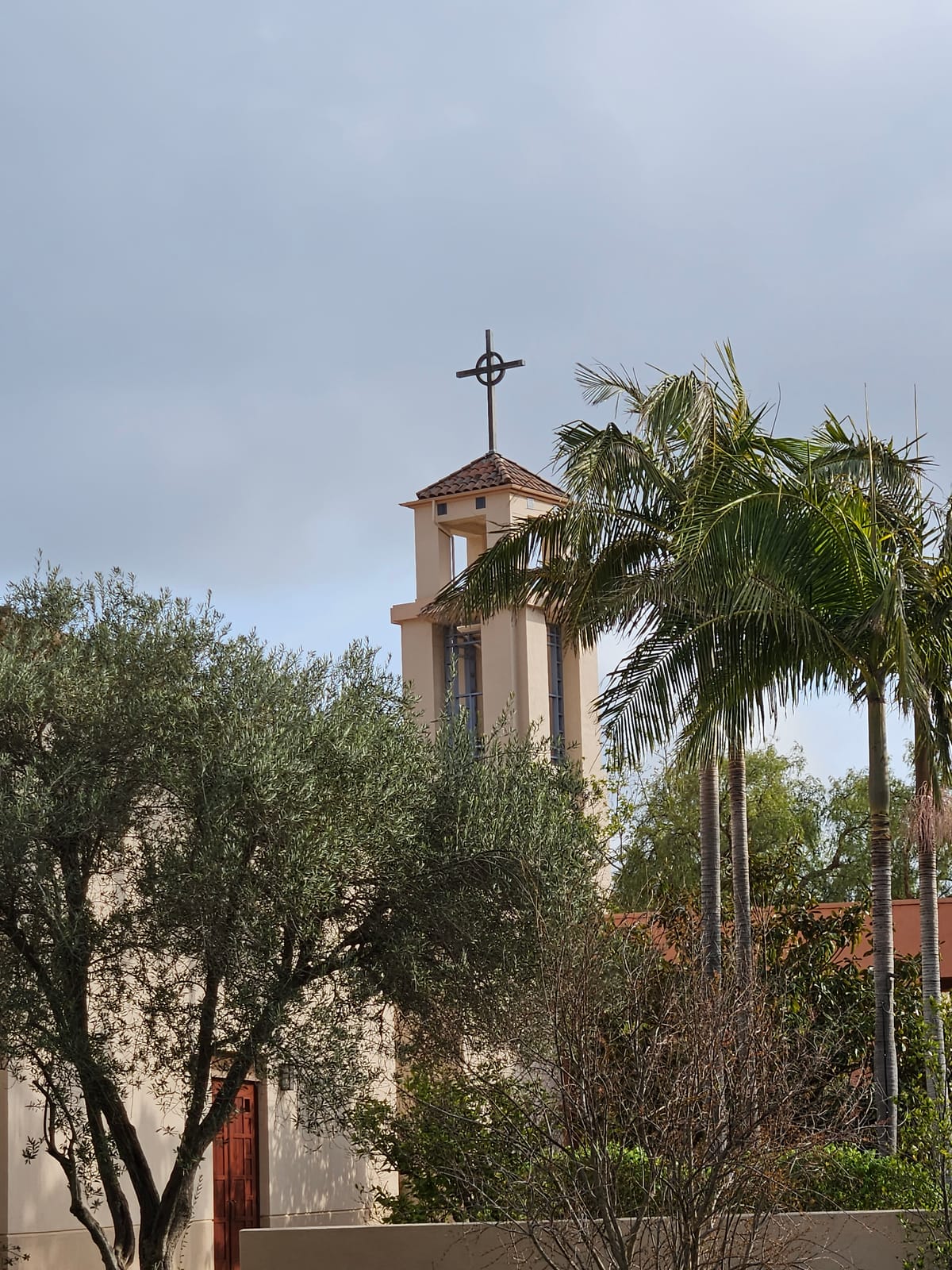In this section, Paul begins discussing more specifically what Jesus has done through the cross. He has brought together two warring factions into one family. Both needed reconciliation, one that was close to God. They were His chosen people for bringing about salvation, and the other were those not interested in following God's way. Through His body, Jesus unites both these factions.
What we see in the Middle East is interesting, biblically. We have Jews and Gentiles facing each other in a conflict. They have barriers and walls. However, they are both on the same side when it comes to the real division in the world. Christ made the two into one. So they who are without Christ, stand on the same theological side, Christless people who need Him. This is not to say there is moral relevance to the actions we have seen, just that both sides deny the need for Jesus.

Mankind/humanity needs peace: not just the cessation of hostilities/war, but the resting of the mind and the calmness of the soul that comes from forgiveness and a sense of greater purpose. When humans have these things conflicts cease. The way this peace is achieved is through the sacrificial death of Christ, who is our peace.
Man stands in enmity (hostility) in two directions: with God, and with man. Christ brings peace too both these relationships. As people know the peace before God, then they are in a condition to experience peace with others in community.
His physical body was sacrificed for bringing us to God. He forgives the sin we bear, because He took our punishment. This peace comes to us fully without our work or effort. We have peace with God through the work that Christ accomplished on the cross.
However, this peace does not end with us. As we know peace with God we can also know peace with others. Specifically Paul is referring to God bringing both Jews and Gentile to Himself in reconciliation. This reconciliation brings peace to both groups as they know forgiveness from God.
people have different views of the world. People have different ways to reach for God. Jews were chosen and instructed by God and Gentiles were creating their own way to follow God. They were making up religions that had no basis in Scripture or God's history with humanity, they they were not of the house of Israel. They were excluded, thus there was animosity between the two groups. Peace is achieved when each group submits to Jesus as the reconciler or the peace bringer. In His flesh, He put to death the enmity.
We who were far away and those who were near are all brought together in Christ. He provides all that we need for peace with God and each other. He has provided the sacrifice that fulfills the law and the death that takes away our punishment. Our peace with God is secure through Christ. Thus we have peace with each other as one family before God and in God.
When we realize that we are whole in Christ, we have the ability to forget ourselves and focus on others. We can forget the insignificant things that separate us and unite around Christ and His call for the church.
Between these groups there was a division, a barrier or dividing wall. This wall was broken down by Jesus. It was a wall constructed by laws, commandments, and ordinances. Also it cause enmity between peoples. However, both were reconciled to God in Christ's body. The payment for both near and far was the same. They each required a sacrifice that they could not provide. Each benefited from a death that was not theirs, but the rewards of that death were applied to them both.
When reconciled to God we are reconciled to each other. As RC Sproul has written, "Paul is not talking about a marriage between Judaism and Christianity, he is talking about Christians. Some were of Jewish origin and others of Gentile origin. Those who embrace Jesus Christ, whether they be Jew or Greek, slave or free, are now reconciled into one family, into one body, by their common devotion to Christ. He is our peace and our Redeemer."1
In this verse, Paul is quoting the Isaiah 57:19, "Creating the praise of the lips. Peace, peace to him who is far and to him who is near,” Says the Lord, “and I will heal him” (Is 57:19). From the beginning God intended for this reconciliation to happen through Jesus.
Jesus has secured pure peace and access to the Father. This peace brings a depth of restfulness that cannot be easily explained. The peace is far deeper than one can imagine from a position outside of the experience. It is a peace that allows one to let go of this world and be enthralled with the next. The burdens we carry are those that we choose not to relinquish to Christ. As we grow we learn to disentangle ourselves from this world in preparation for our eternity with God.
This access is through the Spirit (Holy Spirit). Ralph Martin says it well,
"Among the titles carried by “Messiah” in the Old Testament a key one was "Prince of Peace" (Isa. 9:6). Shālōm means much more than absence of hostility, like an armed truce or “cold war”; it connotes well-being and security at every level. For Pauline theology, “peace” carries two main ideas: reconciliation to God ushers us into a new relationship with God known as peace (Rom. 5:1); and in this paragraph a second dimension is added, namely, the reconciliation that unites men and women across a cultural and religious divide. Both groups, formerly alienated from each other by reason of fierce nationalism, cultural pride, and religious claim, are united to become "one.""2When we understand that we are to live in peace, we should also grasp that we are called to love each other, no matter the people's origin. John writes, "For this is the message which you have heard from the beginning, that we should love one another"1 John 3:11 (NASB95).
We are searching for a new church as part of our relocation to the east coast. This search has us asking questions. What do we look for in a church? What doctrines will divide and what will unite? What are the non-negotiables for uniting with a fellowship? These questions are answered by Christ. He is peace. His doctrine unites. Anything that detracts from the gospel of reconciliation to God and each other is a problem.
Unity is important to the Body or Christ. Not unity at the cost of doctrinal fidelity, but unity at the cost of our arrogance and superiority. In Philippians, Paul urges us to put the needs of other first (Philippians 2:3). This is one of the greatest issues in the modern church. We are more concerned with our way of doing things that we miss that there are levels of importance to doctrinal things in the body of Christ. Some things allow for variance in how we practice Christianity. Modes of baptism would not be a something that would derail my fellowship with believers. Use of wine in communion would not hinder my fellowship with brothers and sisters in a congregation. The unity brought by Christ's blood is a lasting eternal unity that brings all believers together in the church, His body.
God chose to bring together two groups that held vastly different views, for His purposes.The illustration of unity and the dividing wall should speak to us today. Do we understand that unity is important to God? Do we understand that braking down barriers was the work of Christ? We should not trivialize His work of reconciliation into a social justice campaign. We must understand that true peace brings believers together for His glory in the church. And the unity that we practice in the local body of Christ will impact the world.
1 R. C. Sproul, The Purpose of God: Ephesians (Scotland: Christian Focus Publications, 1994), 63.
2 Ralph P. Martin, Ephesians, Colossians, and Philemon, Interpretation, a Bible Commentary for Teaching and Preaching (Atlanta, GA: John Knox Press, 1991), 34.


